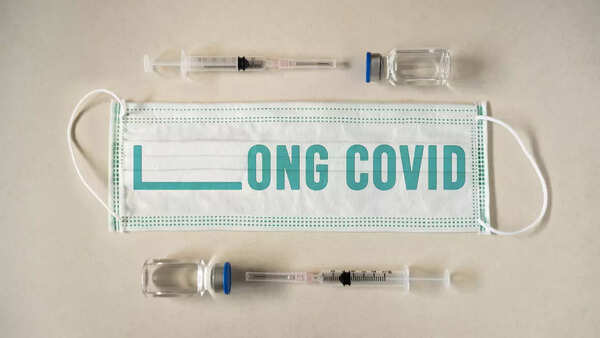One of the biggest repercussions of the COVID-19 pandemic is long COVID, a condition where symptoms persist long after the initial infection has passed. What made long COVID especially tough for those who have it is that many of the health concerns weren’t taken seriously. Researchers have been studying long COVID ever since, and have now listed down the key symptoms, especially in young children.Long COVID can affect people of every age, including children. However, the lasting symptoms differ based on their age: an infant, toddler, or pre-school-aged child, or older children. Researchers at Mass General Brigham have identified the key symptoms of long COVID in young children. The research is published in JAMA Pediatrics.
What is long COVID

As per the Center for Disease Control (CDC), long COVID is a chronic condition that occurs after SARS-CoV-2 infection and is present for at least 3 months. Those with long COVID exhibit a wide range of symptoms or conditions that may improve, worsen, or be ongoing. Individuals who have had severe COVID-19 have a higher chance of having long COVID.
Symptoms in infants and toddlers

In children younger than 2 years old, symptoms of long COVID can be difficult to detect, especially as they are unable to talk discomfort. According to the study, caregivers reported the following common symptoms:
- Trouble sleeping
- Fussiness
- Poor appetite
- Stuffy nose
- Cough
Symptoms in pre-school-aged children

The researchers observed that, for children aged 3 to 5, the symptoms were somewhat different. The common symptoms were:
- Dry cough
- Daytime tiredness or low energy
What do the experts think
“This study is important because it shows that long COVID symptoms in young children are different from those in older children and adults,” co-first author Tanayott (Tony) Thaweethai, PhD, associate director of Biostatistics Research and Engagement at Massachusetts General Hospital (MGH), a founding member of the Mass General Brigham healthcare system, and assistant professor at Harvard Medical School said in a release. “Children with these symptoms often had worse overall health, lower quality of life, and delays in development.”In the new study, the researchers focused on the long COVID symptoms in infants, toddlers, and preschool-age children. They evaluated 472 infants/toddlers and 539 preschool-aged children. Participants were enrolled between March 2022 and July 2024 from more than 30 health care and community settings across the US. The group included children who had tested positive for COVID-19 and those who had never been infected. The scientists then observed the symptoms lasting at least 90 days after COVID infection as reported by the caregivers. They also compared children who had not been previously infected to those with a history of COVID to see which symptoms persisted. In the children who had been previously infected, 40 of 278 infants/toddlers (14%) and 61 of 399 preschool-aged children (15%) were classified as likely having long COVID.
“We found a distinguishable pattern for both age groups of young children, including symptoms that are different than what we see in older children and adults. The tools from this study can be used in future studies to better understand long COVID in young children and develop ways to care for them,” co-senior author Andrea Foulkes, ScD, director of Biostatistics at MGH, professor in the Department of Medicine at Harvard Medical School, and professor in the Department of Biostatistics at the Harvard T.H. Chan School of Public Health said.


